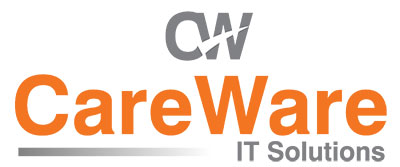Best Kind of Small Business Computer Network 2018
If you are a director, manager or stakeholder within a small business you will have asked yourself, or are likely to in the future, what is the best way for our business computer network to be setup?
Now some will read that last sentence and say “No, I have never asked myself that nor do I plan to. We have an I.T. guy that handles all of that.”
Whilst you may not have phrased the question in quite the same way as above, questions around the security, reliability, resilience and ease of use of your computer network will certainly have crossed your mind, and rightly so.
When it comes to computer networks there are some key things to consider and here are the top 5 things that, in my opinion, should be considered before deciding on the best kind of computer network for your small business:
1. Number of Offices

When building a computer network the aim, typically, is to have all devices that are part of the business connected together with the ability to access resources on the network. Therefore considering the number of physically separated locations is the first place to begin.
A single office location would mean ensuring there is an adequate internet connection coming into the building to enable, internet-based, business operations to function correctly.
Whereas a business with multiple locations will need to consider the same, as well as connectivity between sites which is likely to mean exploring the use of a VPN (Virtual Private Network) and/or the use of co-located services – where servers and network equipment are located externally and connected to via an internet connection.
2. Number of users and devices (growth plans)

The starting headcount matters because you want to ensure your computer network and associated devices (computers, printers etc.) are sized to accommodate the expected usage.
There’s nothing worse than buying and installing equipment/services to find out that they are no longer fit for purpose after 6 months – the idea is to have planned changes as far apart as possible and without hindering business operation, of course.
3. Types of Software Required

Understanding the type of software applications you’ll be using in your business is important. In addition, it is also vital that you understand how your business interfaces, or will interface, with internet-based software or SaaS (Software as a Service) because these types of software inherently put more demand on your internet connection.
That being said there are still many applications that are installed locally and utilise the local system and networking power. For this reason, you should ensure someone in your team or a partner that knows what to expect (performance wise) when using the software you plan to use, within the computer network you plan to use it in and with the number of users you have.
This will help you considerably when planning the type of network that is best for your business.
4. Security

An aspect of computer networks that so often is an afterthought is the security of it. Security can, of course, be left until a breach happens and said breach remedied, but it is highly advised to approach the inception of your business’s computer network with a prevention is better than cure mentality.
You may be thinking “we’re a small business, who’d want to hack our network” or “we don’t have sensitive information on our network so it doesn’t matter”, but here’s why it does matter:
- a. Cyber attackers are not always looking for personal, sensitive or confidential information, sometimes they want to encrypt your data – data that is useful and necessary for you and your business – hold it hostage asking for payment as the ransom for a decryption key, which, in most cases, doesn’t work. Oh, and backups can also be infected!
- b. Not all security breaches are external attacks or even attacks per se. A common scenario is where an employee works on a document at “home” and saves it to a USB drive and brings it into the office (or emails it in) and said document is infected with a virus. Now the entire network is infected, and operations are affected.
- c. An attack doesn’t have to be aggressive. Sometimes a cyber attacker will be passive in their actions, and without the appropriate means to detect unauthorised access a breach can go unnoticed for days, weeks or even months.
5. Support

No matter how many or how few you are in number, whether you’re in a serviced, conventional or home office, whether you have a server or are using a cloud service you should ensure you have at least one person that you can consult in relation to your computer network. This may not be a formal arrangement to begin with but it is highly beneficial to have someone that you can call or ask to come to your business location to assist you.
Remember, problems are inevitable but suffering is optional, so having someone with technical expertise will save you time and hassle because you and your team will, most likely, want to focus on business direction, growth and operations rather than dealing with the technical enablers.
Having considered the points above you should have the necessary information required to begin selecting equipment, systems and services that will be the building blocks for your computer network.
In summary, the best kind of small business computer network is one that is adequate and appropriate for your business size and operation. It is essential that you compare hardware, software and services that you are considering – use trials where possible. You should also ensure that you consult an expert to get your network setup right the first time and to have peace of mind when any problems arise.
At CareWare IT Solutions we offer free impartial advice on the building of computer networks for small businesses. So a call or an email will most likely benefit you as you undertake your research.


Comments are closed.